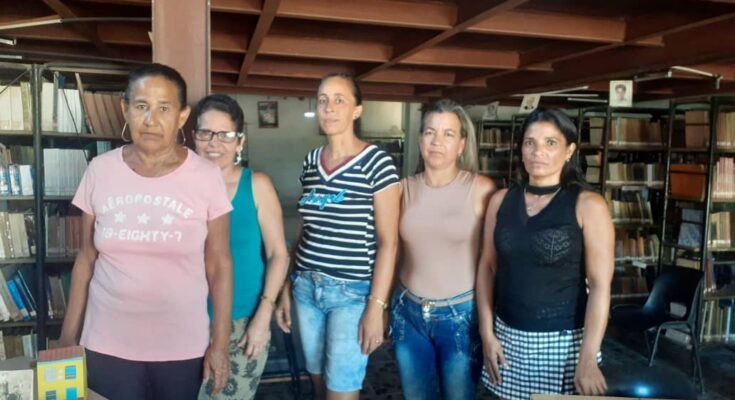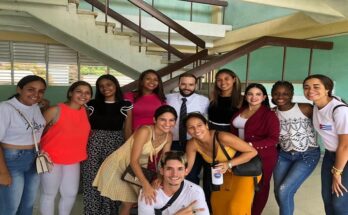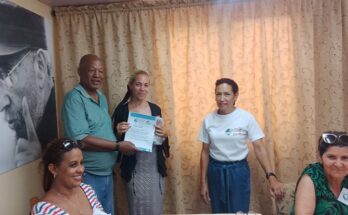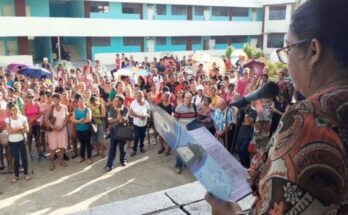On June 7, the day of the Cuban librarians is celebrated, those guardians of the nation’s literary heritage who, on this date, every year, pay homage to the birth of Antonio Bachiller y Morales, considered the father of Cuban bibliography.
A librarian is the person who in a library or documentation center organizes information, helps and instructs people to identify and access the information they need. The librarian’s social function is linked to the promotion of knowledge, culture and literature.
In Contramaestre, there are three public libraries: the Moisés Popa de Baire, Tomás Rodríguez Castro de América and the Luz Bertha Sánchez municipal library, belonging to the culture sector. Also, each educational center in this municipality has a school library.
“The work of the librarian is very important. A librarian who does his job well gets students and users interested in reading. We must be the most prepared personnel in an educational center to be able to guide the student and the user to be interested in a specific subject. If I had to choose my profession again, I would be a librarian again. Very satisfied”.
So says Maggi Lida Domínguez Hidalgo, a Librarianship and Documentary Techniques graduate who is currently in charge of the Pedagogical Documentation and Information Center (CDIP). Located at Camilo Cienfuegos Avenue #76, in front of ESBU Pepito Tey de Contramaestre.
About the services provided by the five librarians who work there, Lida continues.
“We provide lending services in the library, circulating, reference, restoration of documents. We have a large Bohemian collection. We also have other bibliographies. We have a very large collection and we receive donations from many users who visit us. We have a working agreement with the Universidad de Oriente, with the palace of pioneers, with the Pepito Tey, with the pre-university and with anyone who wants to interact with us. We also have very good relations with the public library. We are open to all kinds of people in the community, whether they are teachers or not. We are open from eight to four in the afternoon from Monday to Friday and on Saturdays from eight to noon.”
Cuban librarians add to their traditional work a broad cultural extension work. They bring books and literature to schools, neighborhoods, prisons, among other places. Cuban public libraries also host literary workshops, organize reading circles in schools and various gatherings about books and their authors.
“A wonderful job, providing service to university students in order to graduate, to love books, to teach them with the librarian’s work, to create circles of interest, contests, to promote books because it is never too late to read a book,” says Yanisleidis Flores Miranda, another of the librarians who work at the CDIP in Contramaestre with twenty-two years of experience.
“I love to provide excellent service to the user. Books are an incomparable portable magic. If you don’t like to read, you haven’t found the right book. A home without books is like a body without a soul.”
Other librarians also work in this center: Iliana María Lorente Bringuez, Haydee de La Huerta Hernández and Yanisleys Rosabal Mojena. To them, Solbei Núñez, Yoania, Esperanza Zaldívar, Tahimí Mendoza, Daivis Vázquez, Nely Campin Crespo and all the librarians of Contramaestre and Cuba, congratulations and recognition from the users who need their services.




